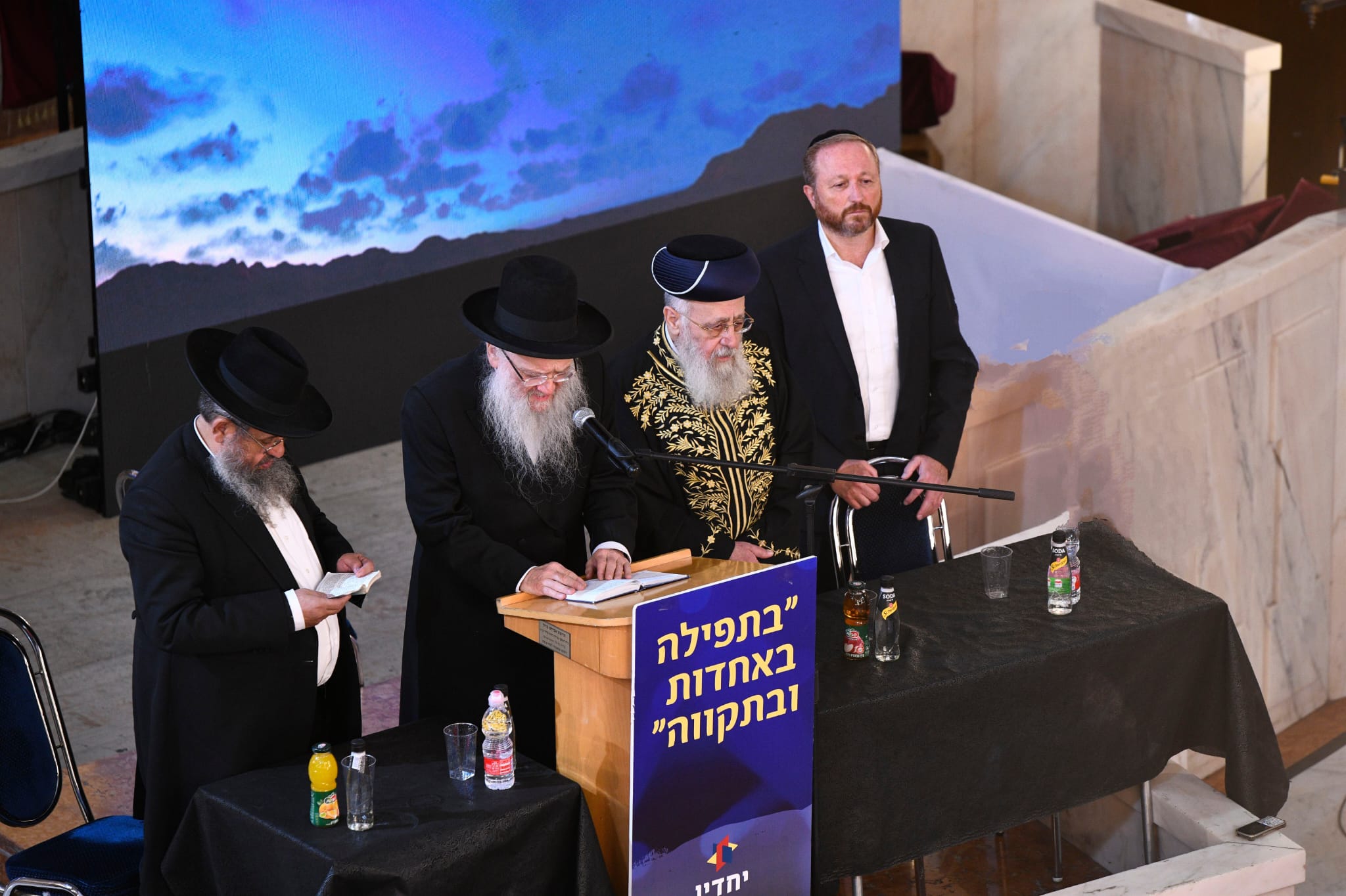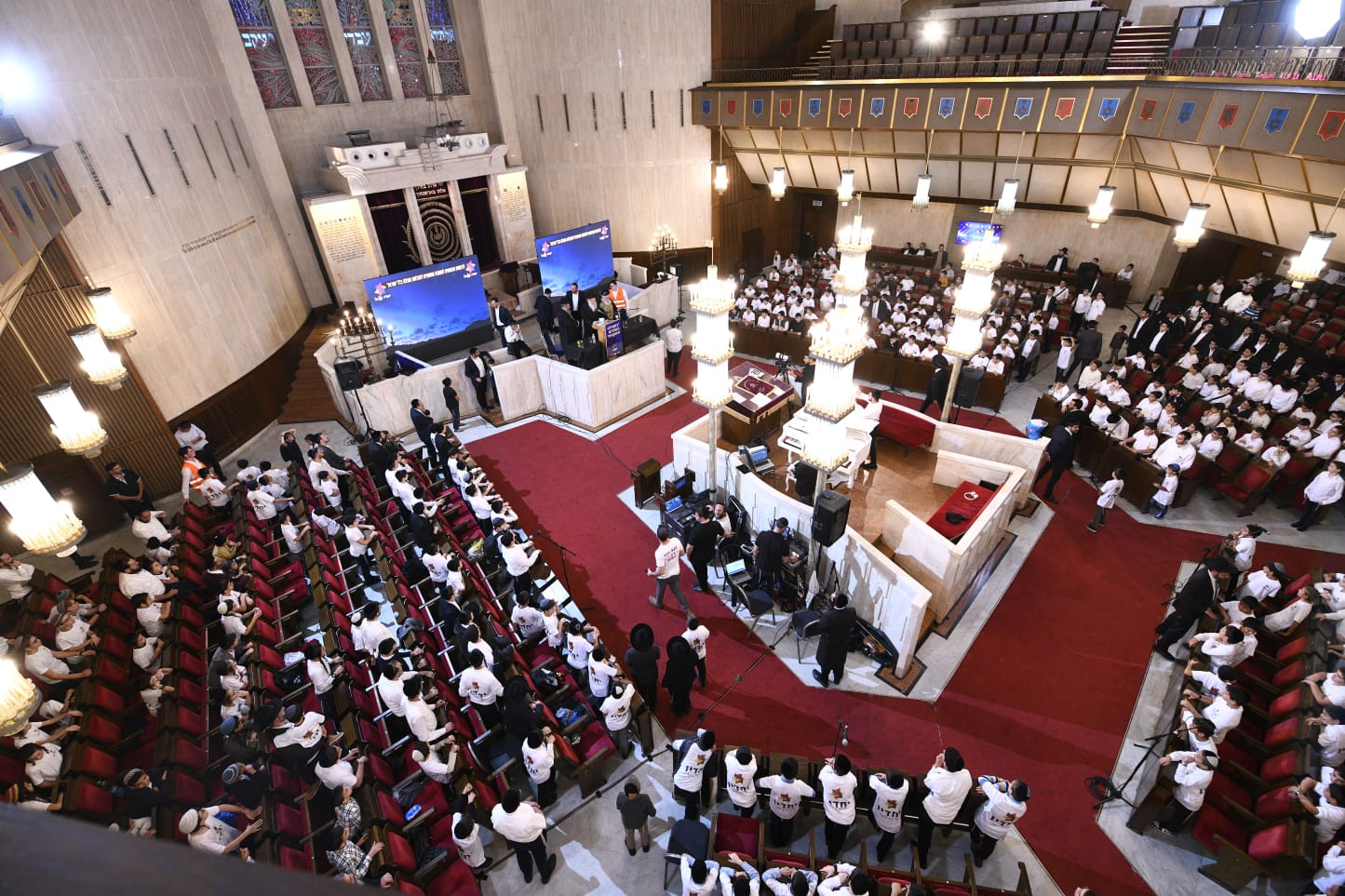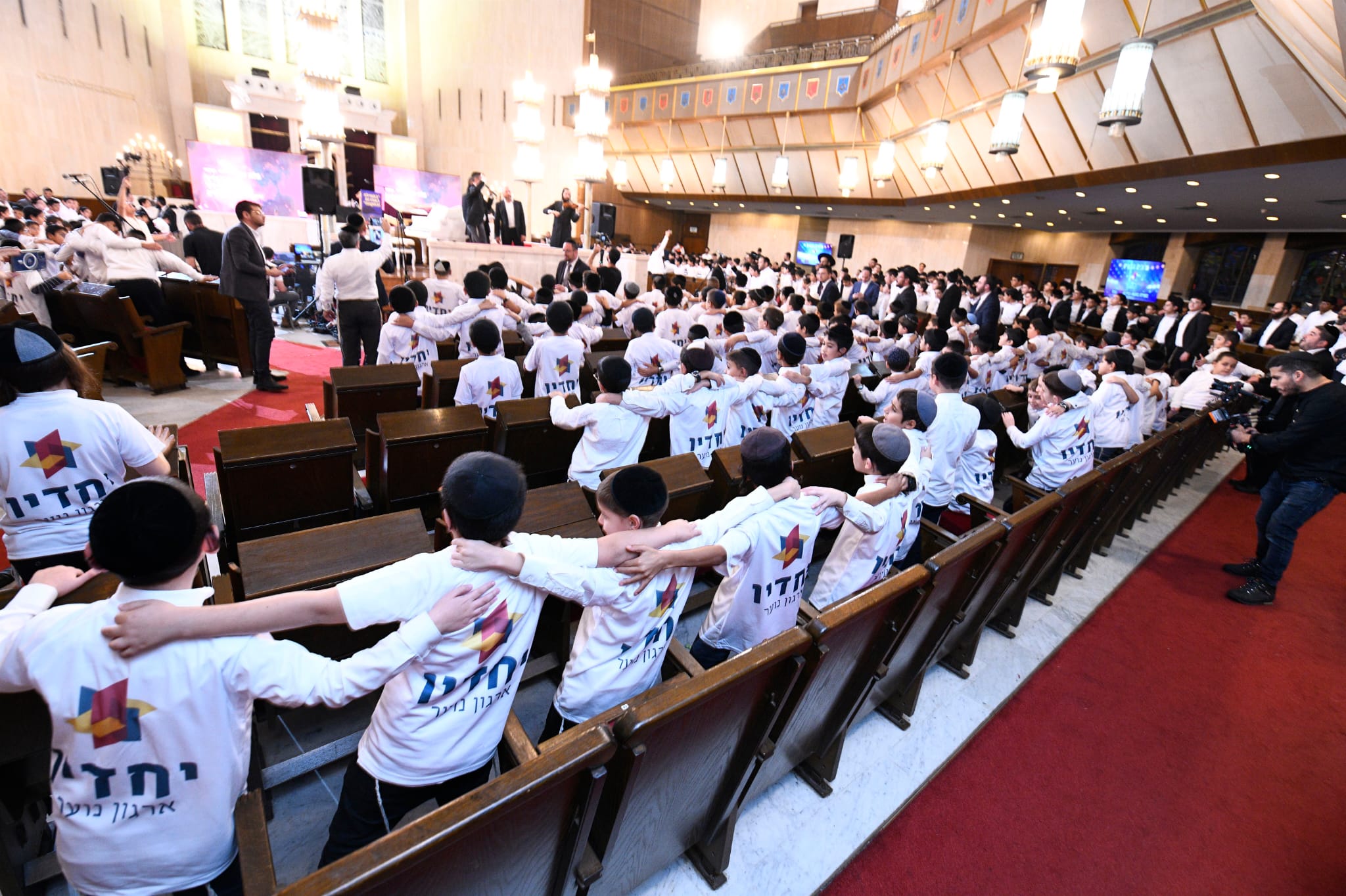"We Were Shocked to Discover the Child Arrived Without Shoes"
Regular activities in various hotels, hundreds of children from the south gathering for reinforcement programs, and much thought given to displaced children. Koby Zitrinboim from 'Yachad' shares their touching efforts.
 Koby Zitrinboim (right) and Israel Shila, manager of 'Yachad' (photo: Netanel Cohen)
Koby Zitrinboim (right) and Israel Shila, manager of 'Yachad' (photo: Netanel Cohen)"In every generation, they rise against us to destroy us... and Hashem saves us from their hands." Anyone who heard the powerful singing of hundreds of children filling the Great Synagogue in Jerusalem couldn't help but shed a tear.
These children, all evacuated from their homes in the south, have been staying in hotels in the city for over two months and came to a unique gathering organized for them by the 'Yachad' organization, operating under the 'Shlavim' association led by Rabbi Ilan Kosman, aiming to strengthen and be strengthened. Not for nothing was the song "Vehi She'amda" chosen by musician Yisrael Susna, given its clear and current message for these times - despite all who rise against us to destroy us, we are confident and believe that Hashem will save us.
However, as it turns out, this moving event is just one of many programs organized by 'Yachad' for these children, as since the war broke out, Yachad has been one of the most prominent organizations setting up in the hotels where evacuees stay.
 (photo: Lipa Mozer)
(photo: Lipa Mozer)
Consistency in Uncertain Times
Koby Zitrinboim, project and partnership manager at 'Yachad', explains the behind-the-scenes efforts: "Yachad is a youth movement operating across the country, particularly in socially peripheral areas. We have about 50 branches for boys and girls, and our goal is to provide programs and activities throughout the year. Our guides are usually young scholars and older boys for the boys' groups, and older girls for the girls' groups - they accompany the children and know them well.
 (photo: Lipa Mozer)
(photo: Lipa Mozer)"With the outbreak of the war," adds Zitrinboim, "we received requests from the Ministry of Education and the Jerusalem municipality asking us to bring our manpower and experience to create informal activities for displaced children staying in hotels. We thus entered almost immediately all the hotels in the city and started offering regular activities for children. In some places, we did it twice a week, in others more. We also organized activities in hotels in the north and center through our teams. The idea is to create a series of regular activities, so the children know there are specific figures coming on scheduled days and times. It's something so lacking amidst the unpredictability characterizing this period. From the start, we felt this was needed, and we've maintained it throughout.
And what do these activities and meetings entail?
"It varies from time to time and place to place. Some meetings involve guides bringing mainly various board games to play with the children; others organize programs with stories and activities. Sometimes, we organize 'fairs' with booths and activity rooms, and occasionally we bring in external activities and entertainers like magicians, etc."
 (photo: Lipa Mozer)
(photo: Lipa Mozer)
In Song and Prayer
While the guides coming to the programs are experienced, nothing prepared them for the difficult sights they encountered during this time. "Outsiders don't understand, but staying in a hotel for over two months is a very tough trial for families," Zitrinboim notes. "We see it up close, and in some cases, we also accompany children through complex and very tough challenges. So, for instance, when we organized a bar mitzvah event about a month ago for ten boys from the south celebrating their mitzvah month, we held a 'combined bar mitzvah' in a hall, but then discovered that one boy had no tefillin or suit or hat. It turned out both of his parents lost their jobs since the war broke out, and the family couldn't cope. I posted an urgent plea for help on my status, and with Hashem's great help, a woman immediately donated everything he needed.
"In another case, one of our guides noticed a girl attending activity without shoes; it turned out to be due to severe economic hardship, and we also rallied to help in this case. For although our official goal is to provide programs, thanks to these programs and our close connection with the children, we sometimes become aware of things people outside have difficulty seeing."
But the highlight was the moving event held at the Great Synagogue on King George Street in Jerusalem, where about 700 displaced children gathered for an event entirely in their honor. "The program began with an especially uplifting prayer with Rabbis Yitzhak Yosef and Efrati," Zitrinboim elaborates, "followed by an amazing musical activity from the Kolulem program, and its documentation broke the internet. People told us that when they saw this unifying and moving song, they couldn't stop crying."
And what happens these days, with talk of returning to living in the south?
"At this stage, the guiding bodies have hinted to us that there are certainly still a few weeks left for activities, and we will continue to be in the hotels as long as required. It's clear to me that even afterward, we won't rest on our laurels, because we operate throughout the country, and there's a wide array of needs. With Hashem's help, we'll reach every place we're required and strive to provide real and communal needs."

